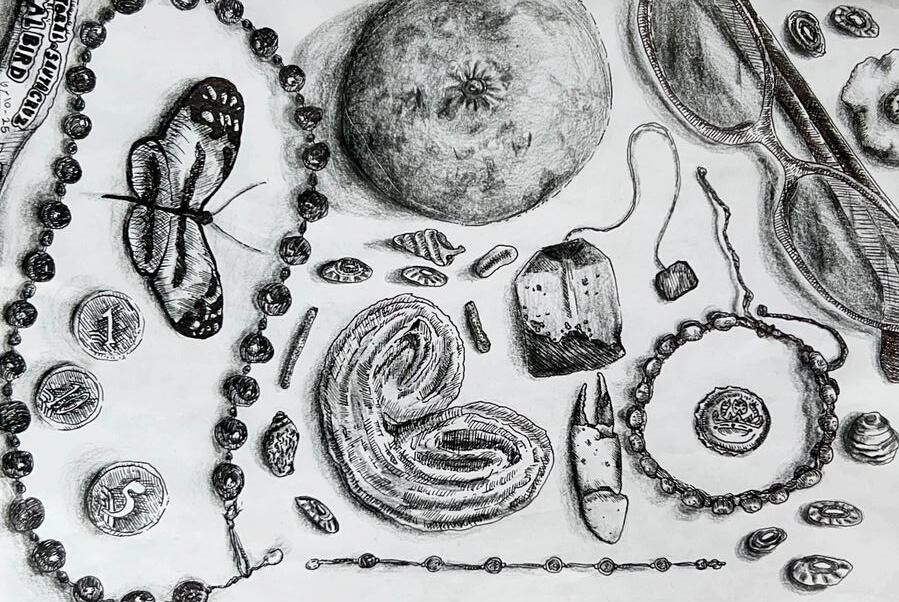
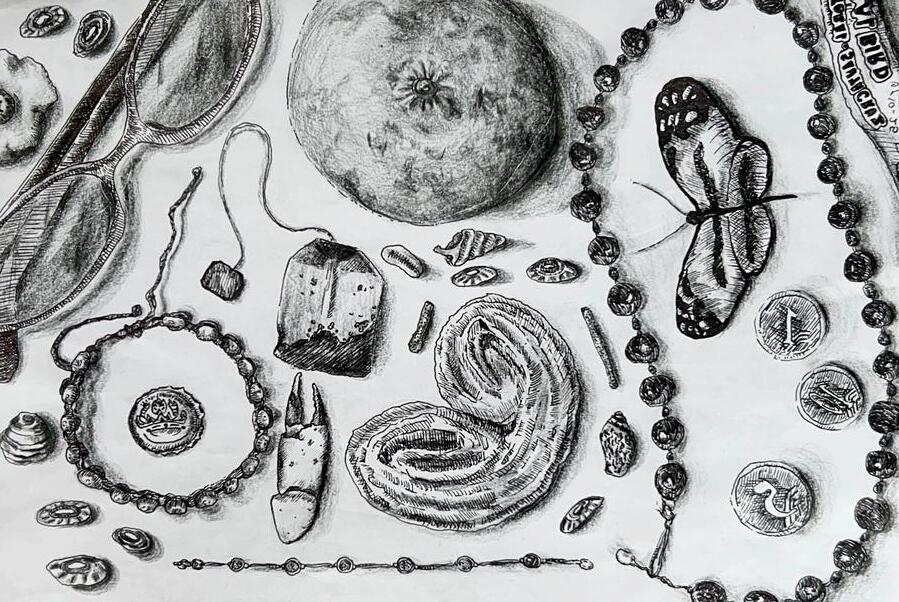



Senior Editors
Camille Kuroiwa-Lewis
Clara Smith
Editors
Reem Alshaban
Gigi Giangiobbe
Nandita Kumar
Catherine Leach
Branna Sundy
Amineh Zakarneh
Samantha Zavala
Advisor
Prof. John McDonald
Cover Design
Branna Sundy
Cover Image
Mollie Klingberg
Writers Logo
Designed by Reece Smith
Writers Photo
Evan Guerra
Fall 2025
University of Portland
Pining
Fullness
Tongue
Equatorial Reminders
Recuerditos
An
Whimsy
The
Rome
Granny’s Home
Secret for the Mad
Tu me manques (you are
The
Etruscan Tombs Null
Reem Alshaban
Layla Decker
Amineh Zakarneh
Jonizza Lupi
Jae Renette
Mollie Klingberg
Lidia Téllez Flores
Sarah Valenzuela
Branna
This year was one of many firsts for Writers. We awarded the first annual Tom and Jane Hogan poetry award in the spring, welcomed the largest editorial board we’ve seen in recent years, and published many first-time contributors in this issue, Mementos. But we’re also closing 2025 with yet another digital fall magazine, yet another year offering credit hours for the editors, and yet another year publishing UP wordsmiths and artistic visionaries. All’s to say, Writers is changing, growing, but at its core will remain a place for students’ original creative work to burn ever so bright.
Mementos is a testament to the creative human spirit, which glows regardless (or perhaps, because of) forgotten loved ones and misplaced good-luck charms. As the fall issue is smaller, digital, and themed, we seek out ideas that are both versatile and memorable. This semester, thinking about what makes an issue memorable led us down the path of considering memory itself. Memory lead us to Memento Mori (“remember to die”), then finally to Mementos.
From sentimental objects to archaeological discoveries, our contributors knew how far to push this theme. Sarah Valenzuela’s “An Inventory of Silence” places readers inside the deafening pit of grief while beautifully describing the many keepsakes that seem to always surround us when we most need them. Layla Decker’s “Driving Home” unveils how vital memory is when you’re on the road and missing home. Jae Renette’s “Tongue Tied” twists a traditional love poem as she unveils that what is left of her memory is the weight in her chest. Lidia Téllez Flores describes the sweet smelling streets of Plaza Moralillo in Tepexi as she wonderfully captures the value of souvenirs in her poem “Recuerditos.” “Etruscan Tombs,” written in the sestina form by Jeremiah Scott, places us inside the 3,000-year-old Etruscan necropolis in the town of Cerveteri, Italy. Scott chooses the perspective of an itinerant traveler who stumbles upon them, utterly abandoned, and lacks knowledge of their history or contents Emma Fleming’s “The Button” shows us how value can be given to even the most unassuming objects
Our contributors play with light and darkness, the strange and the familiar, the sweet and the beloved Their memories satiate them, make them full, but one can see their need to share amongst peers, spoon-feeding us small bites of memories we feel so lucky to hold, even just for a moment We could not be more grateful for their vulnerability and their imaginative prowess Our main goal with Mementos was to invoke the delicate sensitivities of our creative student body, while also urging them to share their culture and their truths We hope to create a sense of belonging for individuals on campus and solidify what the true benefits of artmaking are: a collective memory, an assemblage of written and visual relics that can withstand any attempts to erase diverse voices, a formal call to be as present as possible, a potential warning that love and memory are fleeting.
We love you and owe you our most sincere gratitude.
Goodbye and enjoy,
Camille Kuroiwa-Lewis & Clara Smith Writers 2025 Senior Editors
“The river bears no empty bottles, sandwich papers, Silk handkerchiefs, cardboard boxes, cigarette ends Or other testimony of summer nights. The nymphs are departed. And their friends, the loitering heirs of City directors; Departed, have left no addresses.”
- T.S. Eliot, The Waste Land (1922)
Sarah Valenzuela
Folded in a drawer creased once, then again, as if words could be tucked smaller, hidden like seeds a letter waits. It is my handwriting, slanted with adolescent certainty, ink pressing through the page as though permanence were possible.
“I need you to realize you are here for a reason.” (How declarative. How unlike the me I grew into, who prefers to hedge, to say perhaps, to lean on parenthesis as shield.)
She that earlier self Insists:
Wake up each morning. Be gentle. Carry beauty with you, in your chest, like a secret pocket.
I am startled by her confidence as though she has already seen the fractures lined up ahead, like cracks in lake ice, waiting for my weight.
And yet she trusts me to survive them.
She speaks of memories folded like linens, of art yet unmade, of strangers not yet encountered
whose faces will enter my life like punctuation
commas that pause, colons that open to possibility.
What music, what recklessness, what hunger to instruct her future self!
And here I am, years later,
reading with hands not so steady, with eyes that blur at the edges, listening to a hymn disguised as prose.
How did she know?
That gentleness would be scarce, that belief would calcify and need to be chipped free. That sometimes the smallest forward motion would feel like a miracle a door unlocked, a match struck, a single step across black water.
I want to answer though time has no return address so I murmur across the creases:
I am here. I did not forget you. I gathered violets, pressed them flat, saved them in the dictionary (between “valor” and “voice”). I carried your words even when my throat was closed, even when the days felt like stones dragging from my ankles.
I write back not in ink but in the rhythm of breath, in the fact that I am still here.
The song you began, trembling, insistent, is unfinished.
I am still singing it, in the cracked voice of someone who knows survival is its own strange music.
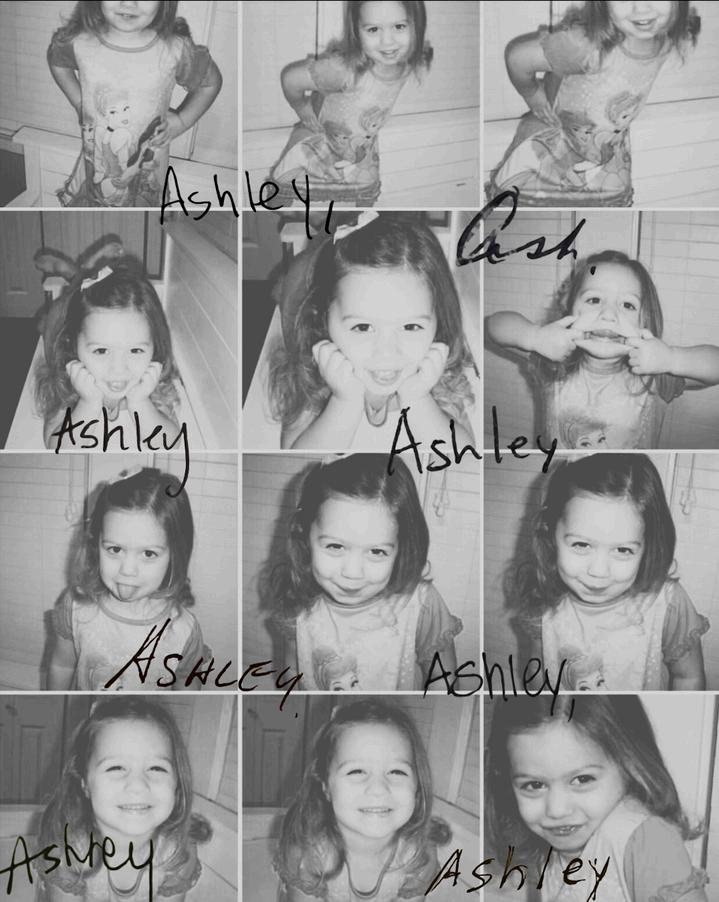
reem alshaban
a field of red flowers on the skin of my cheek spreads in branches and feels like nettles. flora made of verbs and nouns and i and you and i and you and by God, this field stings. you sting. like ivy crawling up my spine, you are overgrowth. botanical guest, you have overstayed your welcome. take your things, pack them and go.
Layla Decker
It’s a hot day.
The kind where the air sticks to your skin like honey and the fields shimmer like water.
There’s nothing quite like the way wind rolls over a cornfield. How the breeze slips cool fingers through the rows, brushing green-gold waves while the stalks hum a satisfied whisper into the horizon. My brother swears it's the most beautiful thing he’s ever seen. More beautiful than the ocean? I question. More breathtaking than anything in the world, he replies.
He’s crazy.
I strain to reach the A/C, struggling to catch the cool air from the back row of the rented van. The tumbling green swells a few hours outside St. Louis make me sick. Up and down we go on country roads, like a rollercoaster, rising and falling without promise. My grandfather, he tells us, used to race his friends on these roads. Spiraling around bends and soaring over bumps. That is, until one too many crashes, until his twin brother Bill snapped his leg in two.
Now these county routes are silent, abandoned. One goes miles without sight of the next homestead or truck. I’m uncomfortable. A foreigner in a distant land a land of sweltering humidity and Sunday pork roast. Yet here I am again, off to see a cousin or perhaps it was an old great uncle. I’ll introduce myself: Mike Decker’s daughter. I won’t remember their name. They won’t remember mine.
Afterwards, we’ll rehash the family drama, as always. Who isn’t talking to whom, or why my grandmother ran away to California and ended up married to her driver my grandfather along the way.
We’ll visit my grandmother’s grave and I’ll accept that a part of me is buried in this alien soil.
I stare forward, crammed into the middle seat, my shirt clinging to my back. All I can see is corn.
It’s a hot day.
As I rest my face on the cool glass, dust fills my view. The same relentless sun bears down. The slums of New Delhi slowly turn to desert. The Bollywood music the driver is playing fills the car. A kaleidoscope of sound, each melody glittering like the film's love interest’s jewelry. To the audience, anything less than gold is worthless.
It’s the middle of Ramadan. We sit in a cousin’s apartment after sundown eating dates and samosas. We talk. About Hindu nationalism making a comeback. About America. About immigration. They ask me what my favorite Indian dish is. I tell them it's mach bhaji. They laugh. It’s not what I should have said. It’s a Bengali fisherman’s dish not something to brag about.
In the desert of Uttar Pradesh, nothing grows. Lifelessness threatens to ring across the open space. We drive away from the smells and sounds of Delhi, where the essence of people, spices and animals smolder. There’s an eerie quiet.
My Nani complains. This is not where my family is from. They are people of the jungle and monsoons. The food is different. The language is different. She doesn’t want to go back home to Kolkata though. Doesn’t want to go back to a place that holds so much pain. The pain that comes out in bursts. In tears. In tears of grief, of blanketing sadness.
It’s a hot day.
The heat paints a film over the horizon rises, blurs, disorients.
We start on the long drive back to St. Louis. I fumble with the aux, searching for GPS. Music starts, Hindi drifts through the car. The first non-English I’ve heard in a week lingers in the speaker. My dad laughs, declaring that my Indian side was showing.
Maybe I cringed because that place made me acutely aware of my Indian side. Maybe I cringed because, far from my mother, my home, and even farther from India, that side felt non-existent. Or maybe I was just annoyed after hours cramped in that van with my dad.
Through the fields. Through the desert. Through the silence. Through the grief.
Towards nothing I can name.
It’s a hot day. The car keeps driving.
Amineh Zakarneh
Strings of the oud and shimmering of the flute
Fayek Ya Hawa croons from the kitchen
Serene and soft, she grips the soul fiercely
Her eloquence cannot be undermined nor eluded
From journey to journey
Discovery to discovery
Insan la insan
An iridescent glass bowl atop a lace doily
Our chair legs longing to make contact, akin to our fingertips
Sipping on bitter Al-Ameed from an intricate finjan
Coffee grounds and saliva tango, coating my teeth and numbing my tongue
The balcony’s breeze emanates cigarettes, desertion, and gasoline
At hardly eleven, the sun’s glare has not a second to spare
The littered words on the pages before me aren’t nearly as captivating as you
Freckles delicately cross the bridge of your nose
Lips parted as the finjan’s rim delivers its daily aliment
Ringlets softly swaying along your forehead and ears
I forget it’s summer when your wishful gaze caresses mine
Your autumn eyes adorned with specks of olive green
They envelope mine and I cannot flee
From neither Fairuz nor your memory
Your qahwa was lovely yet fleeting
Recreating that precise froth is a struggle as winter thaws into spring
With the ibrik you gifted me and my simple mug
Solely to attain that intimate sip of home
Maybe one day I’ll be fortunate
And the seams of our chasm will mend once again
Jonizza Lupi
On the sixth night of October, the moon swells low and amber over the garden, both of them bloated with ripeness the moon gorged on light, the tomatoes splitting their skins all summer until she pulled them from the vine, arms full of what couldn't stay full.
Now the plot is bare.
The moon hangs above it, distended, each one showing what it means to peak: not satisfaction but the split second before loss, the moment when fullness tips toward its own undoing.
She raked the dirt smooth after the harvest.
The moon will wane after tonight, conceding its edges back to darkness, both of them knowing that ripeness already contains the emptying For what swells in the soil, swells under light that's borrowed.
What she carried inside will run out.
What fills will be scraped clean again, waiting to know fullness once more.
Jae Renette
My unmoved love
Transfers my thoughts through my gaze. Her hair the color of dusk, The ever reminder of the sun’s grace.
Decorated curves
On the thickest of her frame
Led to ankles, draped in chain.
I cried for her behind hand grazes. Pleaded beneath covers. I yearned for her in the deepest corners, I shut them away. I folded my desires into simple pleasantries For our love was my comfort. My escape, my hope.
Yours, Your cool, your dates, your sweetness. It became the faucet dripping
On my skin for hours unending. My skin left crawling
At the sound of it, Your love. Your love
It’s all she thought of All her mind would agree on.
My love
Once a cushion away, was in the clouds And I stood in the split drowning. I was a fool.
I had watched my love Drowned in a madness. Upon your arrival I watched the oceans of her crown sparkle. I witnessed my love Shackled, to the bounds of a lover For whom I could not compete.
My love
My unmoved love, Was to remain air in my breath A weight in my chest, Until the inequities of her expression Were to fall in my favor.
mollie klingberg
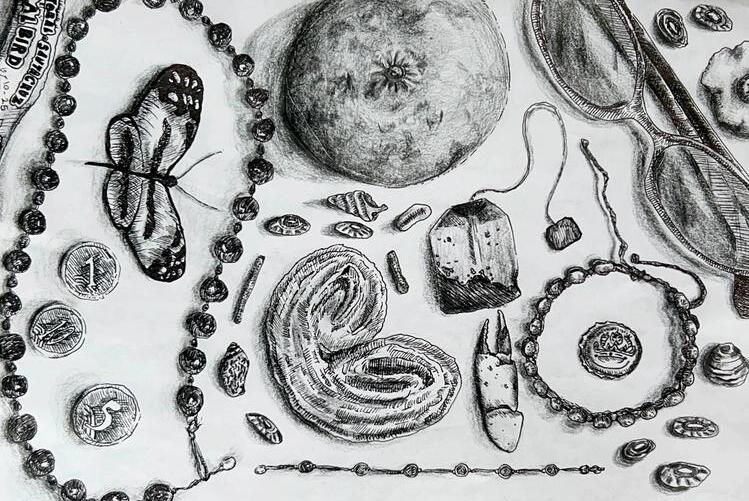
Lidia Téllez Flores
I remember standing in Plaza Moralillo in Tepexi, The sweltering heat across my body, thick sweat
Covering my upper lip, spreading across my back
Looking over huaraches, picturing my Papi’s feet:
Brown heels cracked, big thumb with thick
Callouses– dry skin peeling at the arch. I hoped they’d remind him of his childhood.
I remember walking through the calle de los dulces, A sweet smell wafting past the vibrant papel picado
Buying camotes, palanquetas, alegrias and cocadas
Looking for the sweetest treats to elicit memories:
Crooked teeth stained, examining the dulces
Looking to evoke the moments of Mami’s life
Sticky fingers peeling wrappers, hungry for home.
I remember coming home, suitcase packed with recuerditos, each one tagged “PUEBLA,” wondering if I gathered enough from their homeland, I’d be able to bring Mexico to them.
SARA VALENZUELA
Inheritance is not wealth but residue a faint smell of camphor in a cedar chest, the way the curtains yellow even when closed, the soft percussion of a loose shutter in a house that insists on standing. To inherit, one must first survive the silence. That, too, is a form of property.
The will was written in blue ink
ornate, hesitant each clause a kind of apology. We kept it folded in the kitchen drawer with the expired coupons and rubber bands, because where else do you store the proof that what’s yours is also what’s left behind?
I inventory the detritus:
one glass bird, wing chipped; a salt shaker in the shape of a woman praying; thirteen mismatched forks, each with a history of dinners I was too young or unborn to remember. Even the spoons have a weight of mourning metal thinned by decades of stirring sugar into coffee that cooled before anyone drank it.
Trauma, too, keeps a curio cabinet.
Its glass cloudy with breath, a silence, passed down like silver; a habit of closing doors too softly; the reluctance to waste anything as if to ask: are you sure its shelves lined with relics:
words, grief, or mayonnaise jars. The hinge creaks when I open it you want to look inside?
The photographs are stubborn
they remember too much and tell too little. In one, my grandmother stands at the shore, her skirt clinging to her legs like seaweed, her gaze elsewhere, as though the horizon had promised her something the rest of us would never receive.
I recognize the posture
we all inherit it: that lean toward the past, as if listening for the reprimand in the wind’s voice.
In the attic, light filters through the roof, careful, reverent a kind of priesthood in dust motes. The house speaks in creaks and sighs, the language of wood remembering pressure. I think of all who once lived here: the great-aunt with her secret whiskey, the cousin who left and never called, the baby whose name no one speaks because grief made a superstition of it. Even absence becomes architectural.
The basement smells of mold and resolve. In a box labeled “miscellaneous”
I find my mother’s school report cards, each marked talks too much, and I laugh out loud, because I talk too much too though not to people. Mostly to ghosts, to chairs that still seem occupied, to the echo of piano practice when no one in the family could play.
I have learned that grief is administrative: forms to sign, utilities to cancel, clocks to stop. Even the plants need watering
in the interim between lives. People say, Take what you want, but what I want is what I can’t have: the sound of her laugh before she remembered why she’d stopped laughing. So I take her recipe box instead handwriting looping like ivy, each card a small act of faith in appetite.
The house resists closure.
When I try to shut the front door, it opens again, politely. The wind enters as if invited, stirring curtains into choreography. I stand in the threshold between what was and what insists on being and wonder if the dead ever look back with envy.
We are the living custodians of clutter,
archivists of unfinished conversations. We keep the chipped plates and brittle grudges because someone must. To discard would feel like betrayal. To keep feels like worship. I tell myself that someday, someone will find these things a scarf that smells of smoke, a drawer full of keys to unknown locks and mistake them for evidence of love, or at least, endurance.
And isn’t that the family motto?
Even the dust here knows how to settle without complaint. Endure.
At dusk, I leave the house unlocked.
It hums behind me, low and persistent, like a memory rehearsing itself.
Inheritance, after all, is not the keeping it’s the carrying. And I am heavy with it, walking home empty-handed.
Branna Sundy
i often wonder if my bones were meant to be hollow, mouth a dagger, talons for fingers, second eyelid, wings outstretched, riding wind currents, grazing clouds along the slope of my feathered skull if my neck ought to be slit with gills, scales rippling along my cheekbones, slipping into the water with hardly a ripple, diving deeper and deeper till the sparkling sunrays give way to abyssal organisms bioluminescing under the heft of fathoms
my freckled body ought to grow fur, squish of nose give way to fanged snout, twitching triangle ears, crystallized vision, crepuscular creature on the prowl, hunting, howling, moonstruck, lawless and yet this is what i am perpetually fire-red cheeks, pit sweat, ticklish neck, callused soles, chewing on my lip, peeling paper skin, lightning frizzled hair, cranky morning caffeine-deprivation
late-chasing-time dormouse-sleep kinda girl, stuck-hook lost-boy kinda girl, crooked-book-fiend but never-ends-the-sentence kinda girl, switchback split-stance should-have-shut-my-mouth kinda girl
it seems this humanness persists in spite of it all i’ll always trip on that tectonic-plate sidewalk stub-toe shout, scrape-knee wince tiny green things will sneak through the cracks and i’ll always curl my toes into the grass flinch away from the unrecognized lean in again to take a closer look try to braid daisies in my sibling’s hair make theatre, write sentimental poetry
sit cross-legged on a kitchen counter like the queer little clown i am
soften at raccoons trundling down the sidewalk, at kitty cats that catch my eye, flop-eared dogs passing by patch together love of this and that and you and me and them and here and what is possible marvel at the pinpricks of stars winking above ease that hummingbird heart patter when i lean into your shoulder growl at the stormcloud hurricanes of my own making run waist-deep into the waves, swept up in a rushing tide, howling to the wild blue yonder wind a way through the forest, listening to time ticking quietly from an empty underground cradle-tomb waiting down the river at some grey dawn that’ll come for me catch the brief instant the light gleams, flickers gently out again in a whisper of smoke linger longer than i maybe ought on the street where you live drink in an old song of sweet remembrances from a seat next to you, breath singing music into the hushed silence of us all holding our inhale to hear the quaver of a lonely stranger
bear this life made of faltering, of climbing unsteady up the rolling hill, of reaching a hearty ground and resonating once more till we’re tumbling down the slope again with the grass and the dirt and the dog and the light, and then back up to the top because wasn’t that fun?
it’ll definitely hurt tomorrow but come on, let’s go
Regina Castillo
I keep dreaming about fixing the small, daily failures that pile up like undone laundry. I was packing for a trip or at least trying to.
“We’re leaving now,” they said, again and again, as if time had collapsed. I kept trying to go back, to grab what I had forgotten, but time sped up like a cruel joke, I forgot everything. I left with nothing. The dream ended with me standing empty-handed and somehow still expected to keep performing a successful role in life. I woke feeling a failure.
A comedian wrote “Perchance” in a fake essay. The ‘teacher’ replied, “You can’t just say perchance.” But he did, and then he posted it online. Now it lives rent-free in my head. Perchance we’ve reached the point where irony is our native language. We write in spirals, not lines. We speak in fragments, not thoughts. Perchance is a spell, a glitch in the matrix, a refusal to play by the rules of academic writing.
Las Perdidas were abandoned by some men but found by the internet. “Estamos perdidas, perdidas, perdidas,” they chanted, and suddenly they were everywhere. Their voices became a meme, a mirror. We laughed, but we also recognized ourselves. We are all a little lost, a little desperate to be seen. Their fame was accidental, but the impact of their newfound voices was deliberate.
Controlled flames are warm storytelling, like campfires crackling with laughter. Uncontrolled flames are destruction, swallowing forests and homes without remorse. Fire is a boundary test. It asks: How close can you get before burning? We gather around it for warmth, but we are afraid of catching fire.
Another night, another nightmare. I was moving onto campus, but they kept switching my rooms. I never unpacked. Eventually, I ended up traveling on a train with strangers, none of us knowing where we were headed. The train didn’t stop. I woke up with the distinct feeling that I had missed something. These dreams leave me dissatisfied, as though I’ve been rehearsing for a life that won’t let me perform. I awoke with the taste of failure in my mouth, the kind that lingers longer than sleep.
Fairies are not cute. They are wild old things, creatures of glittery blood and mischief. In stories, they lure children, twist time, and rewrite memories. They are the embodiment of unpredictability, beautiful, terrifying, and impossible to reason with. Fairies are the dream logic of the natural world, enchanting you until you realize you’ve wandered too far. They don’t burn like fire, but they consume in other ways.
A guy selling pirate merchandise was asked if his products were original. He replied, “¿Original en qué aspecto?” and became a philosopher by accident. The question lingers. What does originality mean when everything is recycled and pirated? Even our sincerity is secondhand. “¿Original en qué aspecto?” is both defense and deflection. It’s the shrug of a generation fluent in contradiction.
Emma Fleming
It is only half a button
A jagged edge exists where the middle used to be
The burgundy piece of plastic should be trash
But when the strings of the jacket untied themselves, Setting the shard of button loose, the girl couldn’t throw it away.
It was from the sleeve of a red corduroy coat that her dad used to wear
He wore it on a plane, where he sat on it,
Cracking one of its buttons down the middle, one piece hanging on, For years
Until his daughter picked up the coat
Her eyes shining like a miner during the gold rush, searching for treasure
She didn’t mind the button, or lack there of
It gave the jacket “charm,” she said
Until one afternoon,
When the last half of the button, like a butterfly emerging from a cocoon, Left the spot that had been its home
And now it lays there, resting in the girl’s hand
No longer dangling by a thread
At peace.
Amineh Zakarneh
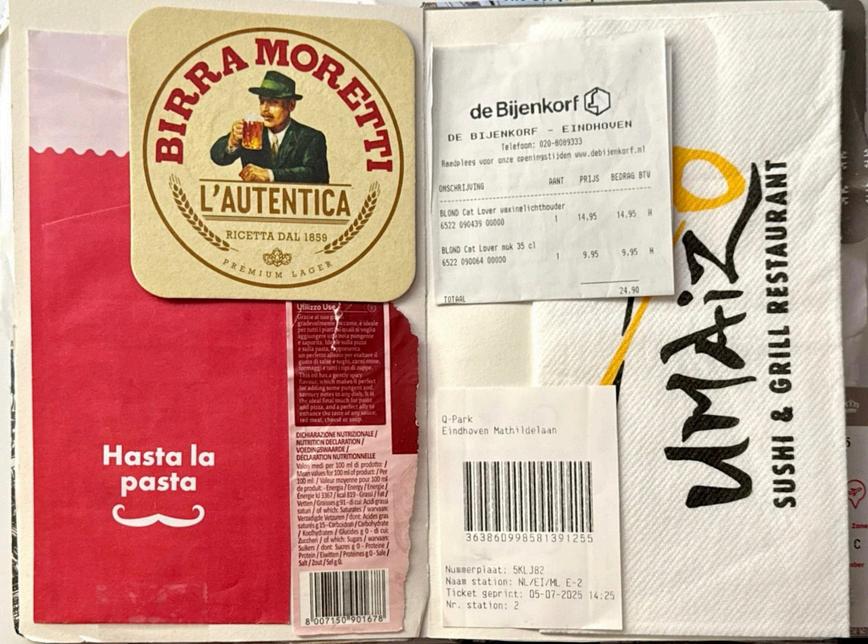
Branna Sundy
We pull up to the curb. The sky is washed blue, robin's egg and cloudless. The immortal tree in the front yard, heavy with oranges. Rosebushes blooming in front, rusty lamppost creaking as I swing around it and up the red brick steps to life itself. Knock knock knock. The hibiscus full of color. Terracotta pots of dry soil, damp cement, a birdfeeder stuffed with seeds, peering through the small window to the kitchen with little painted eggcups lined up on the sill. Feet shuffling down the entryway, behind the glazed glass in the door. The creak of the brass knob and earthy red wood–
Granny opens the door. An easy friendship emanates from her. A halo of curly white wisps and a smile made of crow's feet, the loveliest wrinkles I've ever seen. Hugs and greetings, a hint of powdery lavender wafting about her. Happy to see us. Glad to be together. We shuffle in, kick off our shoes.
I nod a hello to the dinky piano in the carpeted sitting room where I learned to pluck out Ode to Joy on the Sharpie-labeled keys. Still the only song I can play on that thing.
Through the kitchen, newly paneled floors that are just a little too pale to feel right. No matter. The decorative plates are still standing resolutely, Granny's collection of spoons displayed on little wooden racks, the family photos framed against the flowery wallpaper. My mom looks as fiercely beautiful now as she did in college – dark, glossy hair, intelligent blue eyes, sharp nose and calculated angles. Fiona and I posed, unsmiling, toddlers leaning on a cartoonish yellow moon. The Chump clutching a stuffed pink pig. Uncle Brian grinning next to a surfboard, Papa's grump of a smile and Granny’s apple-bright cheeks. She asks how Fiona's work is treating her, admires The Chump’s knifeedge eyeliner, tells me she can't wait to see the show I'm in. Her nails are cherry red, freshly painted (she wanted something colorful). Delicate blue-green globes dangle from her ears. She's a social human being, exudes a determined kindness. I doubt there's a soul in the world she wouldn't welcome. “Give me your tired, your poor, your huddled
masses yearning to breathe free." That's Granny. Immigrated alone from a dairy farm in Blackrock to the neon lights of New York City when she was twenty. A suitcase full of blue clothes in one hand, her relentless love for people in the other. She's made of hope, and always has been. The way I want to be. Granny brews a cup of tea, asks if we'd like anything to drink. The pizza's coming soon, she says. Auntie Maeve'll pick it up. We set the table with her pretty willow-patterned plates and trusty old silverware, Papa's chair still standing stoutly at one end of the table and Granny's at the other.
On the fridge, a patchwork magnet map of the places they've been. Their anniversary in Estepona, Auntie Maeve's Thanksgiving dinner, a visit to Kylemore Abbey, Mom and Dad's wedding, Uncle Michael's graduation, The Chump’s baptism, years of Christmases in the state of eternal sunshine. And inside the fridge, the ingredients for the best damn glass of chocolate milk you've ever tasted.
Off the room's little ledge of a step, and there it is. The center of Granny's home, the crux of all it stands for: the living room. The worn jade green couch with a faded pink flower brocade, plaid pillows, rounded arms. A skylight where the softened sun comes pouring in. A dark, carved wooden bird, mid-flight, hanging from a hook in the ceiling – when you tug on the string, it flaps its wings. But the room's charm lies in more than its collection of furniture and tchotchkes. The bookcases on the wall are largely untouched, caked in dust, save for a copy of The Hobbit that I've slipped from its shelf once or twice. Little need for reading novels in a room where stories happen. The place we recount it all. Drinking songs sung late at night, Granny and Papa’s friends crowded on the couch, me curled up on the cushions with Mom and Fiona, The Chump and I pulling faces and growling at each other, Granny, Mom, and Auntie Maeve gossiping about people they know, news of who’s died and who’s sick and who’s getting married, ruffling Gio’s curls as he toddles past to torment the Legos, sneaking scraps of pizza to Courage waiting, puppy-dog eyes eager for a slice of pepperoni, swapping stories, Christmas day with family, with the wizened kindness of Maureen and Seamus, with Eva, Aileen, and Sammy's electric-buzzing personality, with Granny's niece Alice and her Dan and their border collie Rolo that one lovely time, with
the young family down the street with the little girl and boy who are so quiet and polite, with Granny's best friend Bridie, and the ones who are gone now, Hilda and Sue and Johnny and Kieran and Papa, the tree lit up, the windows dark in early evening, hugs and laughter in the soft gold light spilling over the edges. A communion of soda bread and a stolen sip of Auntie Maeve’s wine, pancakes and chocolate milk in the morning, Club Milk bars and warm tea in the pale gray afternoon, that butterscotch pie we made once, our botched batch of gnocchi, the ornamental Christmas fruitcake I’ve never touched, Granny’s chocolate chip cookies after dinner that, although they’d be too crunchy and overbaked if made by anyone else, are in fact the perfect consistency and therefore to be gobbled in alarmingly high quantities. Through the dimly-lit rec room with the carpeted concrete floor, the benches cushioned by rosemary bushes in the backyard, rogue tennis balls rolling down the little cobbled alley with the bins to the driveway where we’d pull up on the way back from Kona Kai, soaking the seats of Granny’s sliding-door van, towels damp and goggles imprinted on our three little faces, ice cream waiting for us in the freezer. I’ve only lived here consecutively for two weeks at the longest, but it feels like home. I’m lying awake in Mom’s old bedroom under the glittering, silver-dusted ceiling of stars, and the book of fairytales on the wicker nightstand under the lamp that’s never worked is there with me, falling apart and full of beauty, and this is the most comforting place on earth, I think.
Rieve Randall
I had a dream you were still alive. It was dark, there were no stars in the sky and the only thing illuminating the dreamspace were the colorful lights of some unnamed grocery store. I dream about this store often, but it’s always just me and a few random people parading through the store. I always get bread, fresh from some anonymous baker and it always tastes amazing. You see, my senses work in this dream. My emotions work, too.
The other night I saw you hurry into my store, makeup smeared and your eyes cast downward. You were so, so scared. You looked as though you were perpetually lonely, and it saddened me. Something clicks in the back of my dreammind and I remember that you are dead, and that you shouldn’t be here at all.
But you are, and so I walk in after you and see you head to the aisle with the tall glass refrigerators and pull out some kind of drink. Non-alcoholic, something sweet. You look at its label and show some hint of a long-lost smile. It reminds you of home. I come up to you from the side, carefully, and I ask you if you’re okay. Whatever smile was on your face disappears and you tell me “Yes, I am fine.” And then you give me another smile, but it’s not really a smile. And then you bow your head and walk away.
And then you bow your head. And walk away.
But I could have said more, right? I could have actually told you not only how much you meant to me but how much you mean to every student you’ve ever taught and every friend you’ve ever made. I could have asked you about your day, every day, and listened long enough for an answer.
There are these lyrics that I think of every time I hear the word suicide. They’re from dodie.
“There's nothing to do right now but try There are a hundred people who will listen to you cry And I get that they don't get it
But they love you so much that you won't regret it.”
I would have listened to you cry. I would have listened to you cry.
And now somewhere far off amongst the stars, You listen to me cry.
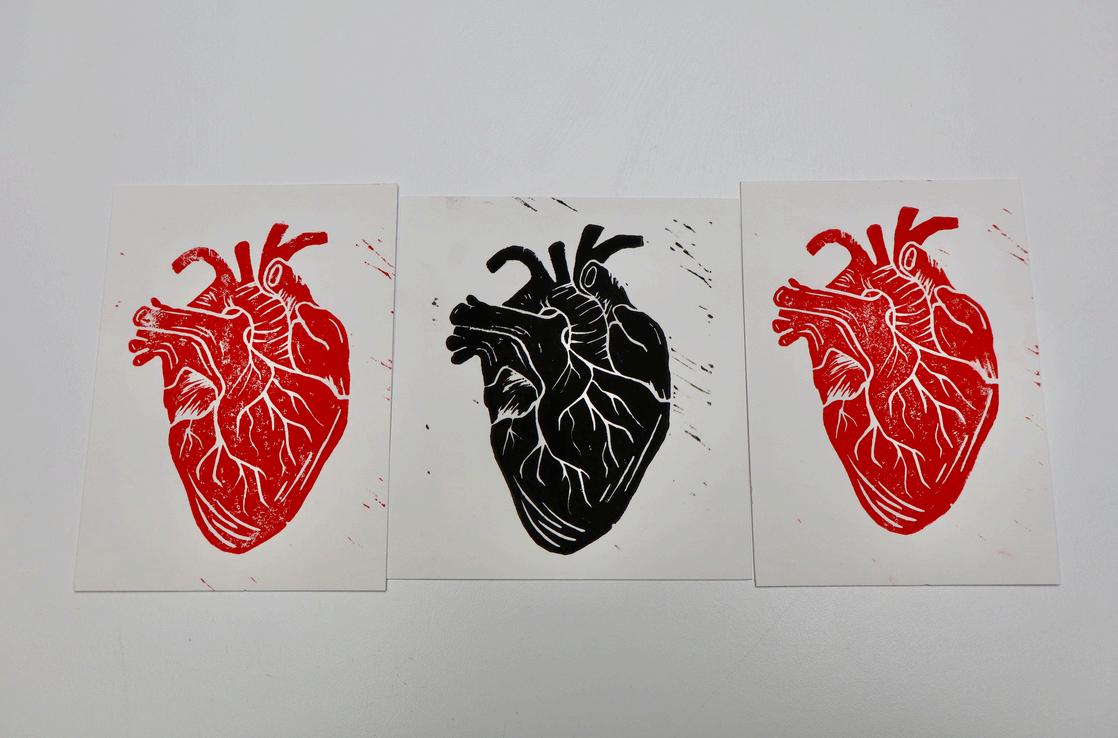
Rieve Randall
The flowers can speak. I have heard it many times before. Delicately chosen words immortalized In Stamen and Pistil. They are loud and simple beings, Who offer one word answers That by all accounts are Indistinguishable from questions. Their words are a touching Kind of harsh intimacy That attach themselves to my soul And constrict my thoughtNot constricting life Yet begging attention,
An embrace from nature herself. It is a most curious relationshipThey keep me mindlessly pining For a mindful conversation. Stay. Listen. And so I indulge them. My day is spent wandering Through green and brown, Vibrant shades of lilac And lavender, The deepest red And the brightest buttercup Who alone would set the world ablaze And together offer me something Far more valuableRespite from all that trembles. Creation is so silent And deafening at the same time. It is only in the admiration of God’s creation That man can be profound.
In the brightness of midday light my feet crossed over the path’s pale earth, its soil marred by streaks of red and striped by gold grass where Man’s feet tread rare. Flanked on either side by old stone tombs, open doors were pits of black wherein reigned an endless dark.
Closer I walked till my eyes peered through the darkness into a place devoid of the sun’s bright light; a place of death it was, a place where death’s doors yet did not open, yawning, to bring them from Earth, the souls called to their eternal home. It was that rare sight which held Death as timid peace, not abhorred by rage’s red.
Jeremiah Scott
As my eyes grew used to the shadowed tomb, Sun’s red rays seeped through and bathed beds of stone, making dark shapes rise from the cold floor. Their bodies were long gone; a rarity it was that they would remain after centuries exposed to air’s light and the light touch of thieves, man and beast I came upon another tomb: deeper into the Earth it went, and down its stairs I went as well until I found myself at an open door.
Within this cavern cold, damp stone surrounded me, and through that door further I was drawn before its floor - a pool of vivid green - untainted by death’s bleeding red, where even in a tomb life could blossom in verdant algaes and minute forms of life, Earth’s slightest living things in glowing hues of lime, standing small but bright against the Dark. There in that tomb they lit with their countless emerald-gleaming bodies, bathing it in light, while there I left in marvel of their color, and in search continued for yet a sight rarer.
Back into the sun I found myself, alone in a field of tombs, until the rarest Sight I found, down another flight of stairs. Through tunnels twisting and cobwebbed doors, A room I entered, larger than all tombs before. Its vast space was bathed in yellow light, and there I found a sight which made me awed: etched to stone were reliefs painted red and blue and gold; axes, pots, and bundled wheat, even pillows on beds of stone. For me dark was given way to a tomb of grand design whose treasures were not gold but art. Earth’s finest treasure I found therein, relics of an ancient land and time, and within the Earth they hid till one could find them. I knew for seeing these I was a traveler rare and rarer still, for I knew, as if the spirits of these hallowed grounds led me, that out of dark gave vision of this relic stone. In those beds noble bodies once laid, souls free to leave the door, which gave me entrance to this place. What they did to earn it, I wondered how much red blood was spilled - theirs and more - before they faced the grave, called to heavens’ light.
Still, I found as I stepped outside, that dark sun banished from the Earth.
It faded from the shadowed hills, leaving when its daily job was done: a sight not rare but treasured still, like the sight of home’s door at last, and happy I walked back in Dusk’s red.
Camille Kuroiwa-Lewis
Strange things happen all the time:
Seeing your old camp counselor on a bus, 100 miles from home. The fossilization of things without bones, like bacteria. Your childhood friend getting pregnant. Hearing a whale call from an industrial river.
And then there’s the familiar:
Fucking up your bangs. Telling someone you love them once, then again and again.
Taking your medicine right before bed. The rhythm of a beating heart. The flicker of a broken streetlamp.
You wonder what people think about as they fall asleep. You think about what people will remember as they die. Will it be the sound of a name? The color of an asteroid?
How can anyone ever accept Memory’s resilience? How its jaws enclose beyond just the pearls and jewels of life, still capturing the shale and bugs, too.
Yet, you learn to love the semantics. To shoot first directly into the heart of things. Asking questions second eventually crossing the riverbeds, despite all the dead ol’ trees, into a brevity, a lightness of total understanding.
Catherine Leach
You felt
Melted butter and dirt under fingernails, and Nostalgia
Fairy-tales are non-fiction and tomato sauce stains satin-shoes Nostalgia, and Mom that snores like a dad and the humidifier dripping to the beat of your favorite song…
Can you hear it, nostalgia? Nostalgia, and touching the television and getting a shock tracing your fingers over the curve of that box, and Nostalgia, nostalgia and the audible buzz in the air... it’s summer
Can you hear it, nostalgia? Is it barren or real, assembled from pieces you no longer feel Knobby bruised knees from climbing up trees
Crawling with ants, so small yet so calm They wander away as if nothing is wrong
You hear it, nostalgia... A breeze through green leaves, a laugh like a wheeze
The twinkle of water holds the old summers, preciously as in the hands of our mothers sun fragmented in billions of diamonds on blue
trivialized in their magnitude
A trick of the light, that’s what it is It’s just nostalgia, nostalgia, Nostalgia and... Gone!
Reem Alshaban (she/her), proper noun:
See definition for 'Editor.'
Regina Castillo (Kiki) (she/her), re·HEE·na cast·TI·yo, proper noun: 1. has the most random playlist with songs in every possible language; 2. has no luck in love and has been yearningly single for 20 years and counting; 3. professional yapper unless mad or sleepy. See definition for ‘yap.’
Emma Fleming (she/her), eh·muh fleh·muhng, proper noun:
1. chronic daydreamer; 2. lover of xtra cheddar goldfish; 3. desires to pet every dog within twenty feet.
Mollie Klingberg (they/them), mall·ee cling·berg, proper noun: 1. roamer; 2. seashell connoisseur; 3. serial movie rewatcher.
Camille Kuroiwa-Lewis (she/her), kuh·meal koo·row·ee·wuh lew·iss, proper noun:
See definition for 'Senior Editor.'
Jonizza Lupi (she/her), juh·nee·zuh, proper noun: 1. An avid reader; 2. rain and Spotify lover; 3. matcha enthusiast.
Catherine Leach (she/her), cath·ur·ine lee·ch, proper noun:
See definition for 'Editor.'
Ashley Marheineke (she/her), ash-lee mar-high-neck-key, proper noun: 1. 3-time Writer’s Mag publishee; 2. future nurse; 3. Radio Rebel. See defintion for ‘KDUP College Radio.’
Nicole (Nikki) Park (she/her), nih·kohl (nih·kee) pah·rk, proper noun: 1. ether wandering, got lost searching for the center of this universe and the next; 2. lying in wait for Sleep Token’s next album; 3. planning my katabasis, wanna come?
Rieve Randall (he/him), reev ran·duhl, proper noun: 1. lover of squirrels; 2. quite small and huggable; 3. soccer enthusiast.
Jae Renette (she/her), proper noun:
1. the curiosity of art; 2. fresh oysters covered in barnacles; 3. 70% yerba mate enlightment mint.
Lidia Téllez Flores (she/her/ella), li·dee·ya te·yes flo·res, proper noun:
1. super monkey ball enthusiast; 2. Batman fanatic; 3. No. 1 fan of the color green.
Jeremiah Scott (he/him), jeh·reh mai·yah skoh·t, proper noun: 1. everything always works out for Jeremiah Scott.
Branna Sundy (she/they), bran·nuh sun·dee, proper noun: See definition for 'Editor.'
Sarah Valenzuela (she/her), sare·uh val·len·zwah·lah, proper noun: 1. reformed theater kid; 2. cherry tomato enthusiast; 3. dream dinner guests are Diana, Princess of Wales, John the Apostle, and Lin-Manuel Miranda. See definition for ‘middle child.’
Amineh Zakarneh (she/her), uh·mean·uh zuh·car·knee, proper noun: See definition for 'Editor.'
Camille Kuroiwa-Lewis (she/her), kuh·meal koo·row·ee·wuh lew·iss, proper noun:
1. hugging you goodbye; 2. will keep you close in her heart; 3. kicking rocks all the way home. See also definition for ‘graduating.’
Clara Smith (she/her), clare·uh smith, proper noun:
1. An armful of white blossoms; 2. A perfect commotion of silk and linen; 3. Do you feel my feathers, soft as snow?
Reem Alshaban (she/her), ree·m all·shuh·bahn, proper noun: 1. noisy mind, 2. tired body, 3. sensitive soul. See also definition for ‘borderline hyper-empathy.’
Gigi Giangiobbe (she/her), jee·jee jee·ahn·jee·oh·beh, proper noun:
1. a friendly witch; 2. loves the things you hate about yourself; 3. has a tummy ache but will still eat the spicy salsa. See also definition for 'émotionnelle.'
Nandita Kumar (she/her), proper noun:
1. king of the Clark library service desk; 2. will force you on a long walk if you stick around too long; 3. is slithering down the big metal slide in the Columbia Park annex right now if you’re free. Are you free?
Catherine Leach (she/her), cath·ur·ine lee·ch, proper noun: 1. perpetually sleepy; 2. obsessive; 3. cat enthusiast. See also definition for ‘nerd.’
Branna Sundy (she/they), bran·nuh sun·dee, proper noun:
1. chaos gremlin, medicated; 2. wooden limbs dangling from strings; 3. a logistical nightmare.
Amineh Zakarneh (she/her), uh·mean·uh zuh·car·knee, proper noun: 1. lover of cinnamon stewed apples; 2. “i’m so out of it right now”; 3. historical fiction zealot.
Samantha Zavala (she/her), proper noun:
1. avid concert goer; 2. Pinterest board lover; 3. goat cheese hater.
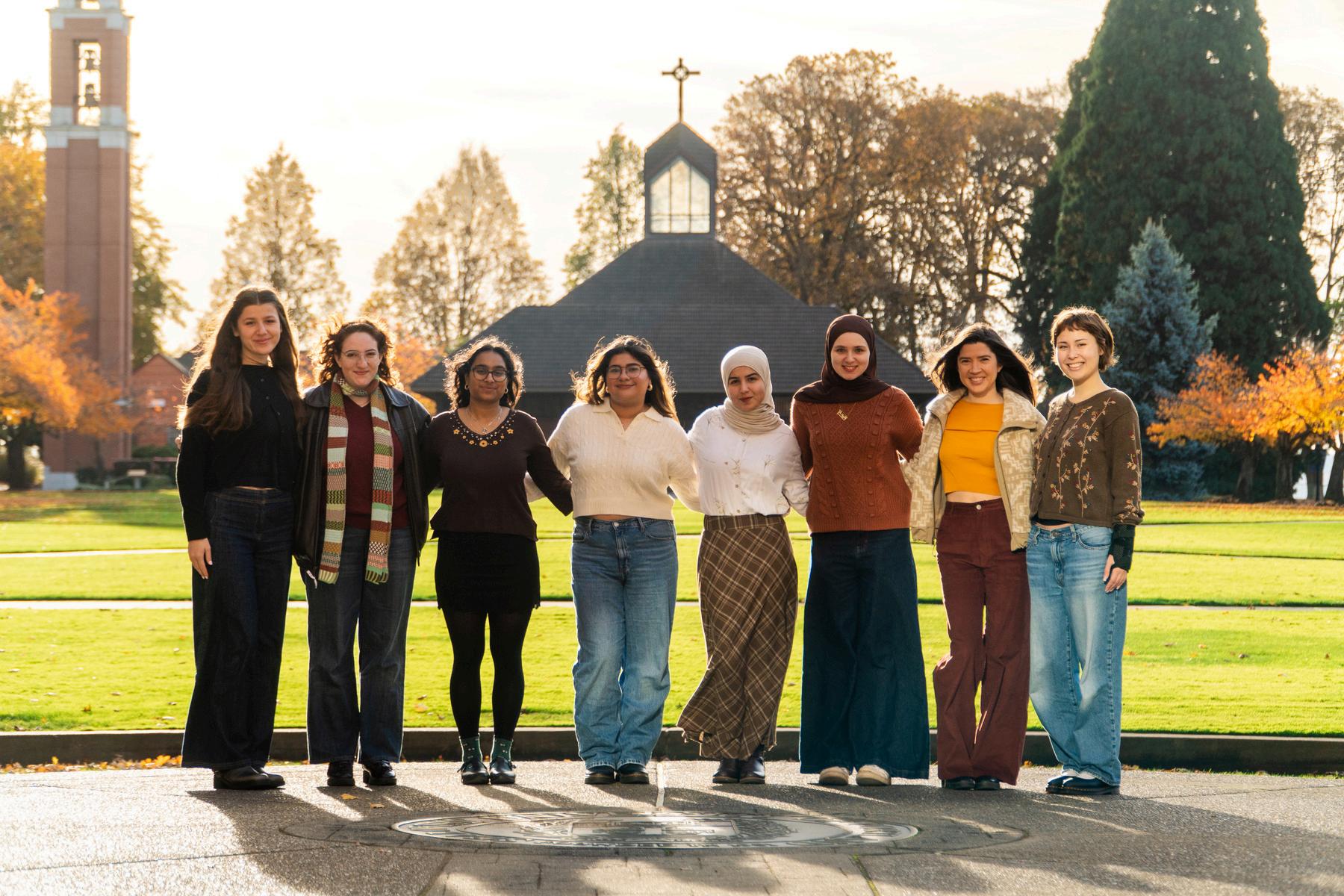
Writers is never a singular effort, and we are immensely grateful for the support of the following people:
Professor John McDonald, our trusted faculty advisor, for inspiring us to uphold Writers as a space first and foremost for students and their work. Your advice has encouraged us through the difficult and joyous parts of creating a magazine. As a mentor, friend, professor, and artist yourself, you have aided in constant care to the world of Writers.
Our contributors, for their amazing poems, musings, and art pieces. Writers simply would not exist without you and is better because of you.
And, most emphatically, the Fall 2025 Writers Editorial Board, for their adaptability, creativity, passion, and patience.
Writers Magazine accepts submissions of original creative work by current students of the University of Portland. These works include but are not limited to short prose, poetry, short plays, photography, visual arts, and cartoons.
All submissions are evaluated by the editorial board. Submissions are kept anonymous throughout the evaluation process.

University